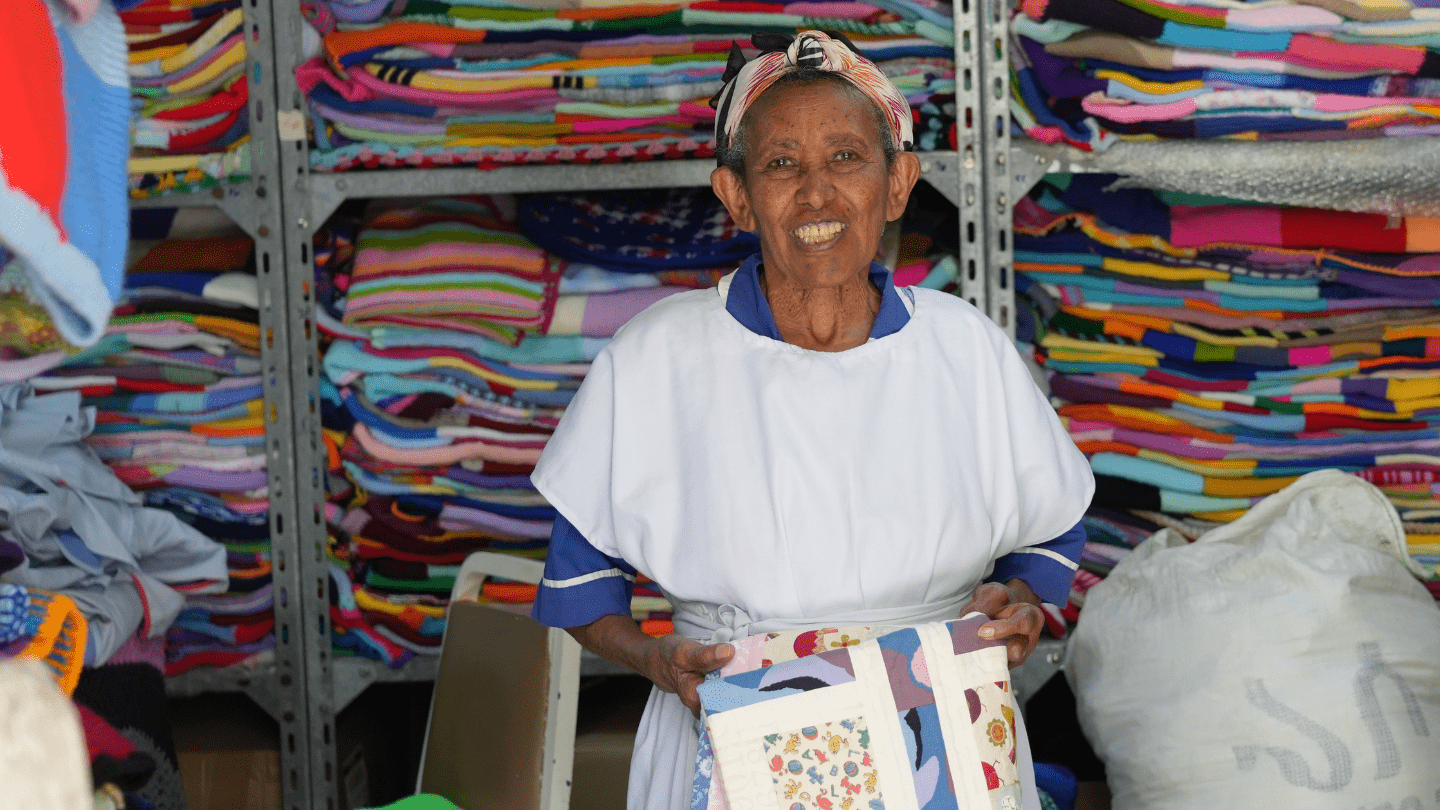The main office and treatment center for Hamlin Fistula Center is located in the heart of Addis Abeba, with a beautiful garden, bright and clean facilities—an essential element in how well the center functions. A key component of the hospital’s success is its sister nurses: women who were once survivors of fistula themselves and later joined the facility to support those who came after them. These women make up some of the longest-serving and most dedicated employees at Hamlin Fistula Center.
Among them is Likyelesh Geremew, one of the longest-serving and most devoted members of the center's team—a woman who was once a patient and is now a lifeline for others. Likyelesh's journey began in 1970, when she was married at the age of 13 to an 18-year-old man in the rural area of Northern Shoa. Shortly after, she became pregnant, and her labor lasted for three days with the assistance of a traditional doctor. “They brought him a long distance to help me deliver but I don’t know what his qualifications were, but he was the only available option at the time.” Unfortunately, her baby did not survive. “The baby cried for a little while, then died,” she recalls, something that is still, decades later, painful to remember.
The aftermath of the birth was equally difficult. Likyelesh experienced severe physical complications, losing control of her bladder and struggling to walk. “I couldn’t control my pee, I couldn’t walk,” she says, remembering how she was carried to a nearby town and referred to Paulos Hospital in Addis Abeba. From there, she was sent to the Hamlin Fistula Center, where she was warmly welcomed by Dr. Catherine Hamlin and her husband, Dr. Reginald Hamlin. They reassured her, telling her she would heal. “They gave me hope and told me I would get better,” she shares.
It was at Hamlin that Likyelesh discovered a new purpose. The staff not only provided her with medical care but also trained her in how to welcome patients and assist in the laboratory. “They taught me how to take care of patients and how to help in the lab,” she says.
The Hamlin Center in Addis Ababa can be intimidating today. The compound is large, its employees are many, all dedicated and focused on eliminating fistula; they are running operations here and in the five satellites across the country, providing services to countless women, but Likyelesh remembers when there were just 5 employees and 18 patients.
Likyelesh says she chose not to have children after her difficult experience with childbirth, but she has become a mother figure in her community. She raised her brother's children, and today, one of them is married with children of their own. "It's enough for me to have loved," she says with a smile. "They see me as their mother, it’s irrelevant that I didn’t give birth to them myself."
Even beyond retirement age, Likyelesh continues to serve at Hamlin. “I love my work,” she says, her face lighting up. “Watching women heal, seeing them regain their health, that’s what makes me feel good.” Her dedication to the women she serves is unwavering. “For as long as I am alive, I want to serve mothers,” she declares. “I see no reason for retirement.”
Likyelesh’s story is one of compassion and an enduring commitment to helping others. Her dream, she says, is to see the center close its doors one day, knowing that fistula will no longer be passed on to future generations of women.


